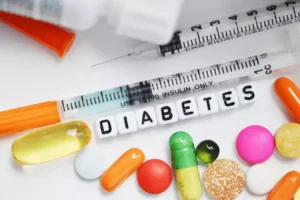
Depending on how serious their condition is, they could be supported in residential care, sheltered accommodation or in their own home – with support in the community. Some of the common symptoms of alcohol-related ‘dementia’ may make it harder for a person to take part in an alcohol treatment programme. These symptoms can include denial, lack of insight and being impulsive. A person can be diagnosed with alcohol-related ‘dementia’ if they have problems with memory, thinking or reasoning that severely affect their daily life, and are most likely to have been caused by drinking too much alcohol. It can be difficult to get an assessment, as some GPs will insist that the person has stopped drinking for several weeks before they can assess the person’s memory.
Concussions, Traumatic Brain Injuries, and Alzheimer’s Risk
- Prompt treatment with thiamine (vitamin B1) for people with Wernicke encephalopathy can potentially prevent or lessen the development of Wernicke-Korsakoff syndrome.
- If you or a loved one is living with alcohol-related dementia, it can be extremely difficult to cope with—personally and for the family.
- They may use cognitive screening tools, imaging tests like MRI or CT scans to look for brain changes, and blood tests to check for nutritional deficiencies—especially thiamine, folate, and vitamin B12.
- Depending on your symptoms, you might also undergo a brain scan to rule out other concerns, like a stroke or tumor, or brain bleeding caused by physical trauma.
- The life expectancy of people with ARD varies, and more research is needed in this area.
- Cognitive rehabilitation, occupational therapy, counseling, and support groups can further help individuals relearn or maintain daily living skills and cope with the emotional and psychological challenges of recovery.
Some experts think that a person can be assessed for alcohol-related ‘dementia’ while they are still drinking too much, as long as they aren’t intoxicated at the time of the assessment. If a doctor is unaware of the person drinking too much alcohol over many years, they may can alcohol cause dementia not consider alcohol-related ‘dementia’ as a possible diagnosis. The person may not get the right treatment and support, which is why it is important to tell doctors about drinking too much alcohol.
factors affect your risk for dementia, stroke and depression, study suggests

A healthcare provider can diagnose alcohol-related dementia in a few ways. The first step is doing a complete physical exam and neurological exam. Your provider will rule out other conditions that cause similar memory issues and other symptoms. You may also have a higher risk of traumatic brain injuries if you have alcohol-related dementia. Unsafe drinking increases your risk of falls, car accidents and other head injuries.

Alcoholic Dementia vs. Wernicke-Korsakoff Syndrome
As KS shares similar pathological substrates and often follows an episode of WE, it is commonly referred to as the Wernicke-Korsakoff syndrome 1. Increasing evidence suggests that the WKS encompasses a spectrum of pathological, neurological, and cognitive impairments resulting from thiamine deficiency 4. The heterogeneity in presentation of the WKS, in combination with a lack of distinct pathological evidence for ARD, has led to the suggestion that cases of ARD are variants of the WKS 20. Other evidence suggests that ARD and WKS are distinct disorders with overlapping clinical symptoms and associations such as peripheral neuropathology and ataxia 21. We examined associations of dementia with alcohol consumption in midlife, alcohol dependence, hospital admission for alcohol related disease, and trajectories of alcohol consumption over 17 years. In addition, we examined whether cardiometabolic disease modifies the association between alcohol consumption and dementia.

Multiple alcohol-related cognitive syndromes have been described, of which the two most important are alcohol-related dementia (ARD) and Wernicke-Korsakoff syndrome (WKS). In people with young-onset dementia (who are younger Alcoholics Anonymous than 65 years old) ARBD affects about one in eight people. It is likely – for a wide range of reasons – that the condition is under-diagnosed. This means that the number of people living with ARBD is probably higher. Alcohol damages the brain in a variety of ways over both the short- and long-term. However, as stated, the exact cause of alcoholic dementia remains controversial.
Different Types of Alcohol Rehab
- Data on comorbidities were taken from NPR, while cause of death was obtained from the Norwegian Cause of Death Registry.
- It is not clear why some people who drink too much alcohol develop ARBD, while others do not.
- Excessive alcohol use for many years is linked to alcohol-related dementia, and some people can develop it more rapidly than others.
- With the right treatment and support, there is often a good chance that it will stop getting worse or improve.
We used the approximate Poisson method to compute the standards errors and CIs, with an exponential (log-based) function approach to estimate the CIs. Psychotic disorders may be related to heavy alcohol use and especially alcohol dependency (AD) (ICD-10 diagnosis F10.2). The psychotic phenomena that more or less directly follow extensive alcohol use or AD vary in type and possibly in origin.
Damage to blood vessels
“Alcoholic dementia” is an older term commonly used to describe the medical condition now known as alcohol-related dementia or alcohol-induced major neurocognitive disorder. These terms are used interchangeably and describe a severe form of alcohol-related brain damage (ARBD). Last year, a group of dementia experts published a report listing 14 specific actions people can take to lower their risk across their lives.
